Question And Answer
Publications
Articles, publications, books, tools and multimedia features from the U.S. Institute of Peace provide the latest news, analysis, research findings, practitioner guides and reports, all related to the conflict zones and issues that are at the center of the Institute’s work to prevent and reduce violent conflict.
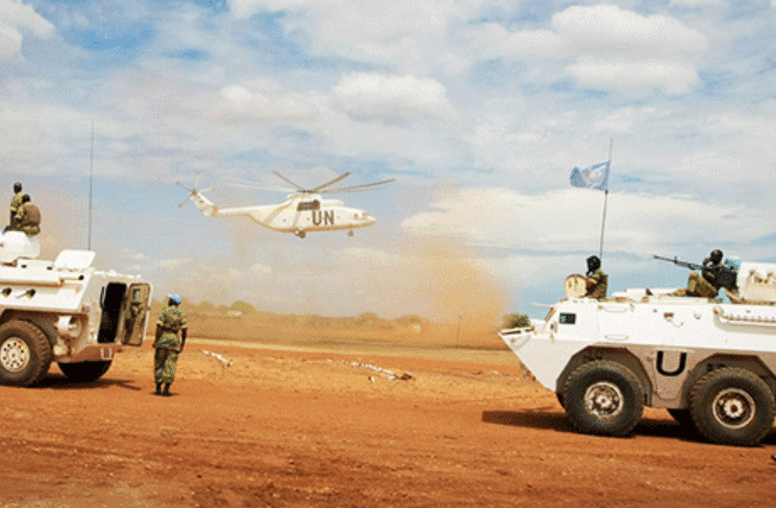
Saving U.N. Peacekeeping: High Stakes for the U.S.
As America and its allies confront a widened war in Syria, the refugee exodus to Europe, and terrorist violence in Paris, Beirut and Mali, we must treat the roots, not just symptoms, of these catastrophes. That will require an urgent repair of our world’s main tool for addressing violent conflict—the increasingly overwhelmed United Nations peacekeeping system.
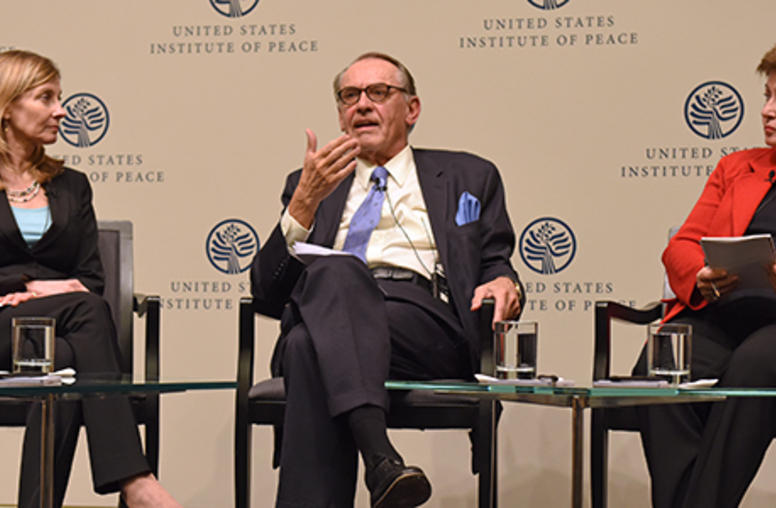
U.N. Eyes Early Human Rights Intervention to Promote Development
United Nations discussions that are underway on how it can intervene to stop human rights violations within national boundaries might help prevent such tensions from exploding into the kinds of civil wars and floods of refugees that the world is experiencing today, said Jan Eliasson, the global body’s deputy secretary general, at an event organized by the U.S. Institute of Peace.
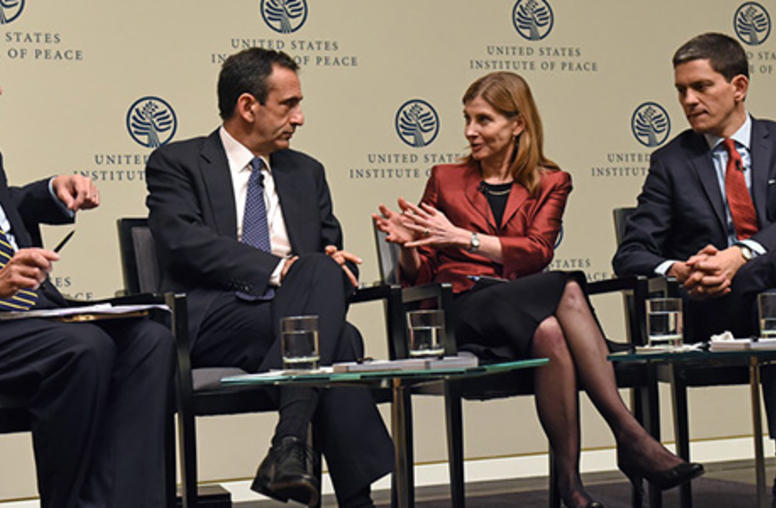
Too Little Aid, Too Many Displaced: Remaking Humanitarian Assistance
The international system to aid people displaced by conflict is strained beyond the breaking point. Faced with the greatest flood of displacement since World War II—and with no end in sight—governments and international organizations need to rethink every level of aid, from funding to future outcomes, according to experts assessing the crisis in a discussion at the U.S. Institute of Peace.
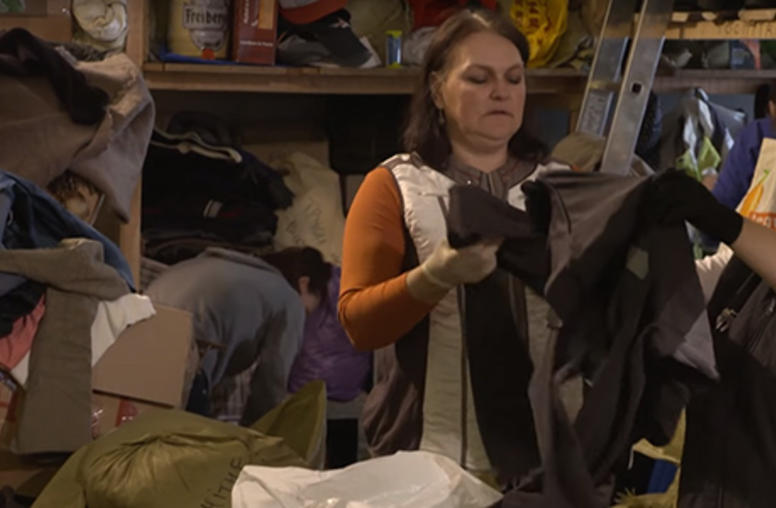
Europe’s Refugee Crisis Shows Ukraine’s Resilience
With Europe awash in more than a half-million refugees from Middle Eastern and other wars, it might be easy to overlook Ukraine’s response to its own population—nearly three times the size, at 1.5 million—displaced by the Russian-backed war in the east.
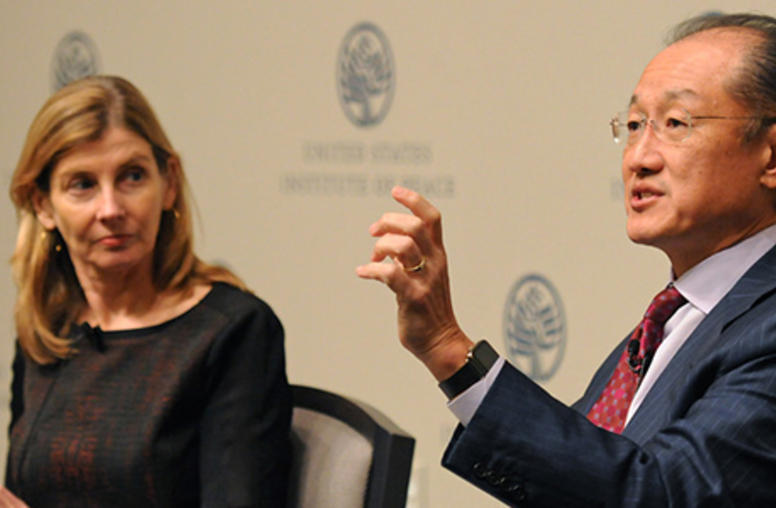
World Bank Chief Urges End to Extreme Poverty, Rethink for Development in Conflict Zones
World leaders must act to end extreme poverty in the next 15 years by addressing economic inequality that stems from wealth concentrated in the hands of a few and exacerbates conflict and instability, World Bank Group President Jim Kim said in an address at the U.S. Institute of Peace.
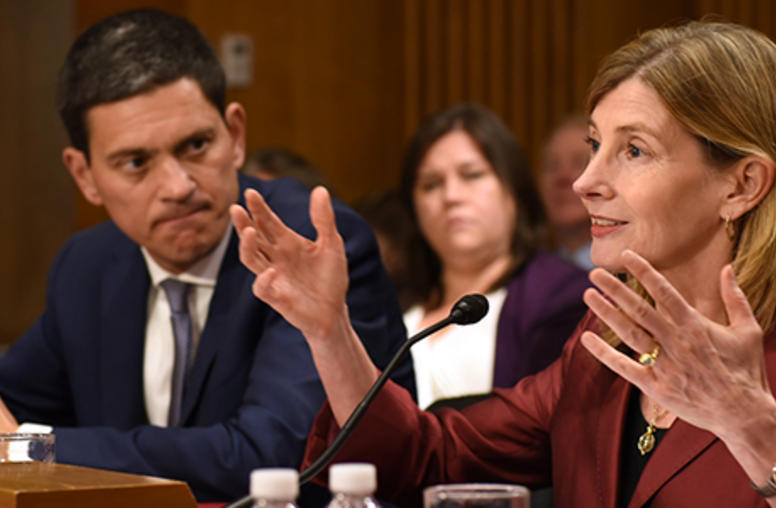
The U.S. Role and Strategy in the Middle East: The Humanitarian Crisis
USIP President, Nancy Lindborg, testifies before the U.S. Senate Committee on Foreign Relations. More from President Lindborg following her testimony, "Refugees and Social Cohesion."
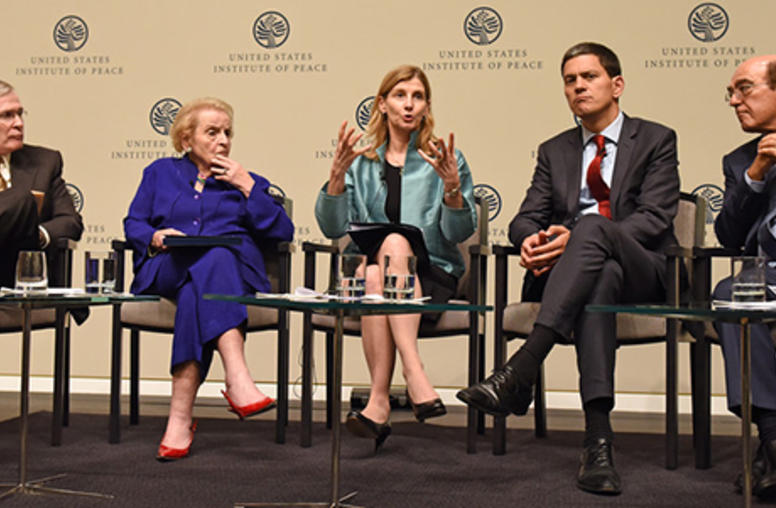
Europe’s Refugee Flood Shows Urgent Need for Action on Middle East
Former Secretary of State Madeleine Albright and former National Security Advisor Stephen J. Hadley joined U.S. Institute of Peace President Nancy Lindborg, a U.K. foreign secretary-turned humanitarian advocate and other experts in calling for U.S., European and other world leaders to accelerate assistance to refugees in the Middle East and reinvigorate efforts to end the conflicts that drive them out of their homes in the first place.
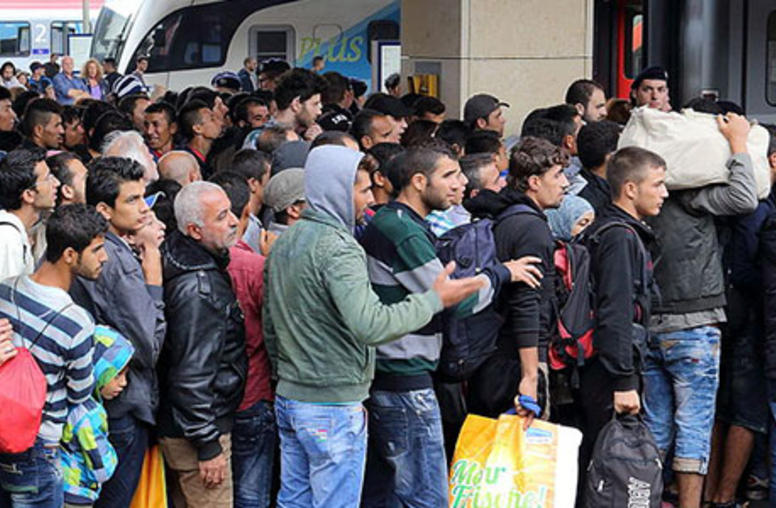
Stopping Europe’s Refugee Crisis at the Source
To halt the flow of people fleeing war, poverty, and oppression, the international community needs to redouble aid efforts where they're needed most.
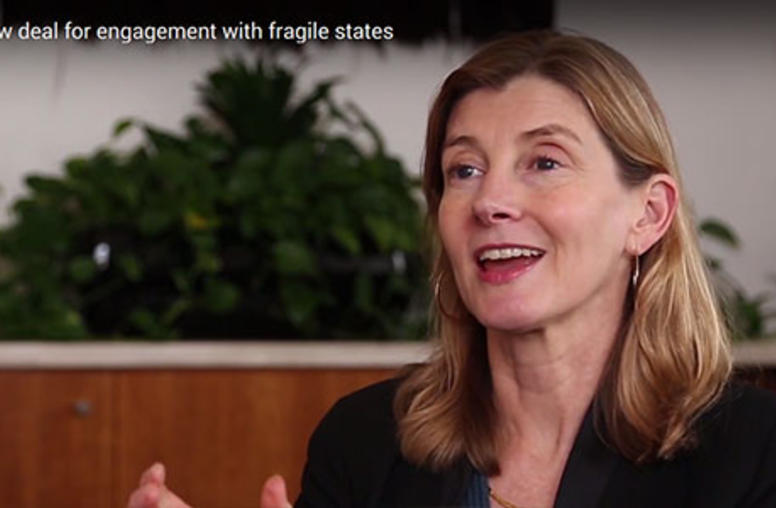
Nancy Lindborg: Finding common ground for development and defense
Development, diplomacy and defense must work together to help shepherd countries from fragility to peace and democracy. Nancy Lindborg shares her thoughts on bringing together the "three D's" for more effective crisis response.
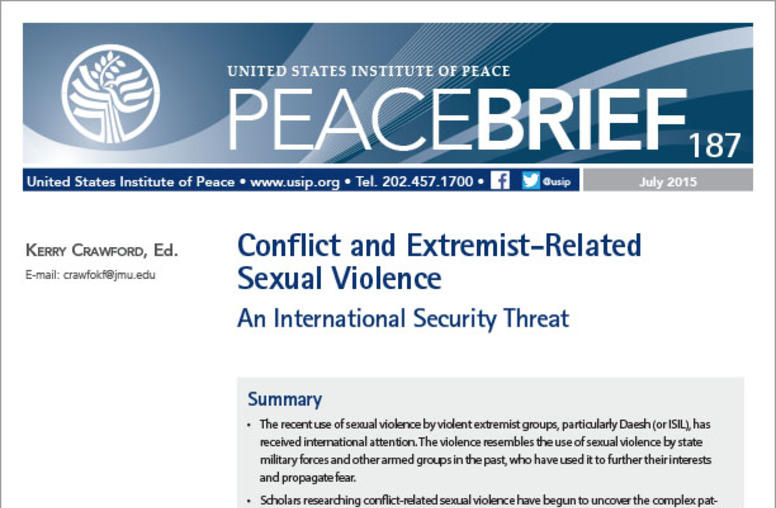
Conflict and Extremist-Related Sexual Violence
As extremist groups in the Middle East and North Africa perpetrate sexual violence against women as part of their campaigns to further their interests and propagate fear, scholars are reaching a deeper understanding of the ways in which sexual violence, before, during, and after conflict, arises from a complex pattern of political, military, social, and economic factors. International actors can draw from this work to craft responses that better assist survivors and hold perpetrators accounta...